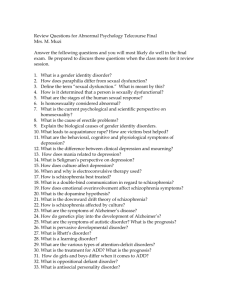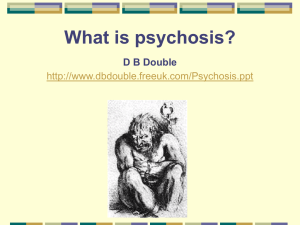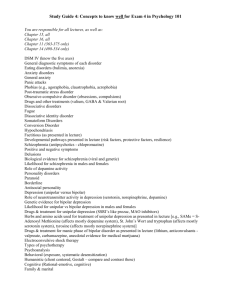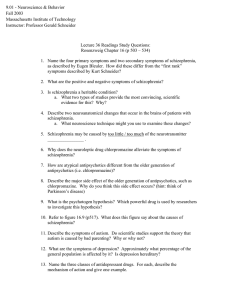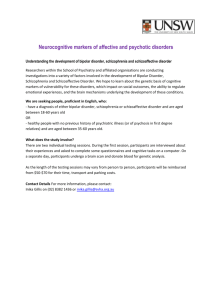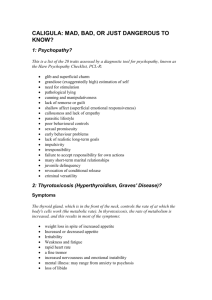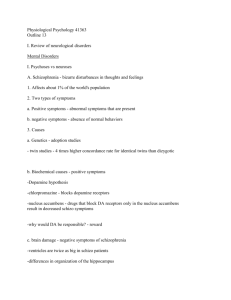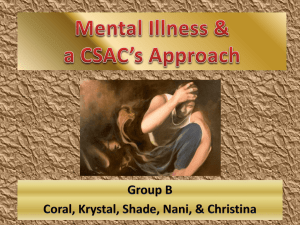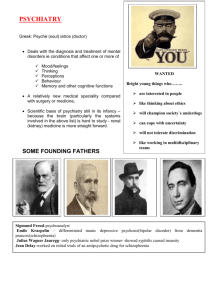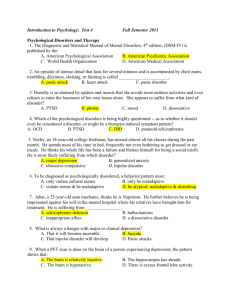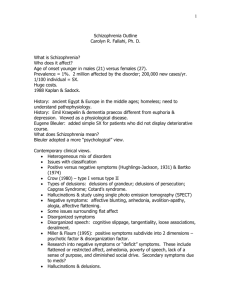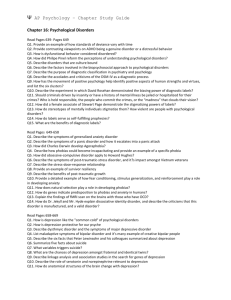Principles of treatment & management in Psychiatry
advertisement
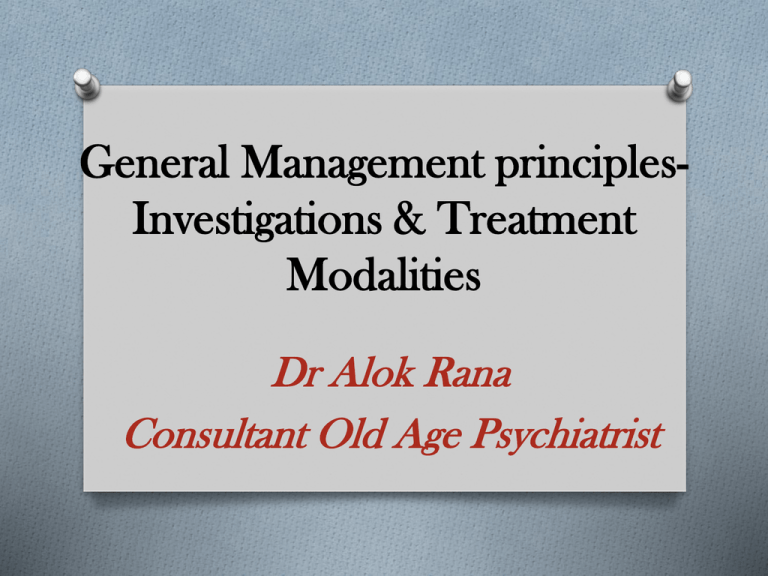
General Management principlesInvestigations & Treatment Modalities Dr Alok Rana Consultant Old Age Psychiatrist Management O Assessment Formulation O Investigation O Treatment Investigation Traditional Other O Bloods O Collateral history O Scans: CT, special O Corroboration CTs,MRI, PET, fMRI, O ECG O Previous notes O Other specialities Treatment O BioPsychoSocial O - Formulation to identify what to treat Holistic Approach: Whole person Symptomatic Treat the cause Preventing the consequences Biological/Somatic O Drug/Physical element based treatment: O Routes: - Oral - Injectibles - Patches - PR - long acting inestions or depots Pharmacological Somatic Tt O Anxiolytics O Antidepressants O Mood Stabilisers O Antipsychotics O Drugs for cognitive disorder O Drugs for addictions O Hypnotics Non Pharmacological Somatic Tt O ECT: Electro Convulsive Therapy: Depression, O O O O Mania, Schizophrenia, Post partum psychosis Phototherapy TMS: Transcranial Magnetic Stimulation DBS: Deep Brain Stimulation Neurosurgery for psychiatric disorder Psychological O Talking therapy: O Who delivers O Psychologists O Psychiatrists O CPNs O Other staff- trained Psychological therapies O Counselling O Psychodynamic: Brief individual to Psychoanalysis O CBT: for anxiety, depression, eating disorder, schizophrenia O Family Therapy Psychological therapies O CAT O DBT O Therapeutic Community O CST Treatment by professions O Rehabilitation techniques: Ots O Art therapy O Aromatherapy O Dramatherapy Social aspect of treatment O Identify predisposing, precipitating & O O O O perpetuating factors Make formulation Identify need: housing/family/support/finances/ Social services CAB Illness based Somatic Psychological O Depression:Mild to Mod O Mild Depression O Anxiety O Anxiety O Mania/Bipolar O Eating disorder O Schizophrenia O Personality disorder O Psychosis/delusional O Mild dementia disorder O Dementia Factors to consider Pharmacological Treatment Stages in life Drug Factors O Children O Drug side effects O Elderly O Drug-drug interaction O Pregnancy O Timing & frequency O Breast feeding O Mode of O Pharma ceuticals/ co- kinetics/dynamics administration Prescribing O Establish and inform indication- diagnosis/ O O O O symptom based/ treat the cause etc Discuss options and explain Help patient to make an informed decision Give information as leaflet if needed Explain side effects, MOA, contraindications, what to expect and how to seek help Drugs – what to know O MOA O Half life O Indications O Metabolism site O Doses O Interactions O Exception to normal O Know the individual dosing O Side effects – serious and other; early and late; warning signs. O Red/Amber drugs O Hospital initiation only drugs O Specialist formulary drugs & costs. Limitations O Knowing your expertise O Acknowledging your limitations O Stepping over the boundary O Ever-changing medicine – life long learning O Joint working with other specialists Early vs definite treatment I believe in early I will treat only if I am confidant O Better response O Labelling & medico legal O Better prognosis O Unnecessary exposure & O Quick recovery Side effects O Consequence on career& personal life. O Eg Schizophrenia, Bipolar, Dementia O Less chronicity O Eg Early psychosis, depression, mania Psychotropics Anxiolytics: -Antidepressants: O TCAs O SSRIs (1st line) O Mirtazapine O Trazodone O SNRIs - BZD, Antipsychotics O Typical/FGA: Haloperidol, Chlorpromazine (S/E) O Atypical/SGA: Olanzapine, Risperidone, Quetiapine Aripiprazole Clozapine Psychotropics Mood Stabilisers: O Lithium O Sodium Valproate O Carbamazepine O Olanzapine O Dementia medication: O CHI medication O Donepezil O Rivastigmine O Galantamine NMDA Antagonist: Memantine
